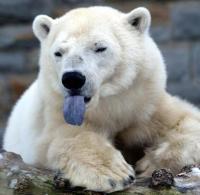U.S. House Committee on Science and Technology Subcommittee on Investigations and Oversight Chairman Brad Miller (D-NC) has sent a letter (pdf) to the ExxonMobil Corporation requesting all records since 2002 related to their support for scientists working on polar bears and other Arctic animals.
This request comes in the wake of an “opinion” piece appearing in the journal Ecological Complexity by seven scientists claiming that there is no evidence of decline in the polar bear population of West Hudson Bay as a result of global warming.
In an acknowledgement at the end of the article, one of the lead authors, Dr. Willie Soon, thanked ExxonMobil (along with the Charles G. Koch Foundation and the American Petroleum Institute) for their support of his work on polar bears.
Subscribe to our newsletter
Stay up to date with DeSmog news and alerts







